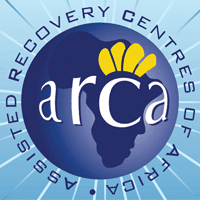3 Ways to Help Family in Addiction Recovery
3 Ways to Help Family in Addiction Recovery, When a family member is navigating addiction recovery, your support can make a world of difference. From creating a safe and understanding environment to encouraging professional assistance, there are key ways you can help them on their journey. But there’s one more critical aspect to consider, a factor that can often be overlooked yet holds immense power in shaping the recovery process. Let’s explore this essential element together.
Supportive Family Environment
Encouraging open communication and offering unwavering support are crucial components in fostering a supportive family environment during addiction recovery. By actively listening to your loved one’s struggles without judgment, you create a safe space for them to share their feelings and experiences. Expressing empathy and understanding can help strengthen your bond and show that you are there for them no matter what. Your consistent presence and encouragement can provide the stability and reassurance needed for a successful recovery.
Setting boundaries and practicing self-care are equally important in maintaining a healthy family dynamic. It’s okay to prioritize your well-being while supporting your loved one through their journey. Remember that addiction recovery is a team effort, and by taking care of yourself, you can better support your family members. Together, you can navigate this challenging time with resilience and hope, knowing that your unwavering support makes a significant impact on their recovery journey.
Education and Understanding
To enhance the effectiveness of your support for a family member in addiction recovery, educating yourself on the nature of addiction and understanding the challenges they face is crucial. By learning about addiction as a complex medical condition, you can grasp the emotional and physical toll it takes on your loved one. Understanding the behaviors associated with addiction, such as cravings and withdrawal symptoms, will help you empathize with their struggles and offer more meaningful support.
Educating yourself on addiction can also help you recognize signs of relapse and understand the importance of ongoing recovery efforts. By gaining insight into the recovery process, you can encourage and be a source of strength for your family members. Additionally, knowing how addiction affects the brain and behavior can help you avoid judgment and offer compassion instead.
Encouraging Professional Help
How can you support your family members in addiction recovery by guiding them toward professional help? Encouraging your loved one to seek professional help is a crucial step in their journey towards recovery. Professional treatment centers like ARCA Durban offer the latest medications for withdrawal symptoms, control cravings during recovery, and guide trained medical professionals. These facilities ensure a step-by-step recovery process, emphasizing evidence-based treatment and viewing addiction as a medical disease. By recommending a reputable facility like ARCA Durban, you can help your family members receive tailored and individualized treatment programs that cater to their specific needs.
Professional help can also include aftercare programs and counseling sessions to support long-term recovery. By advocating for professional assistance, you are showing your family members that you are committed to their well-being and that you believe in their ability to overcome addiction with the right support. Remember, guiding your loved one toward professional help is a proactive and caring way to assist them on their path to recovery.
Establishing Boundaries and Communication
Establish clear boundaries and open lines of communication to foster a supportive environment for your family members in addiction recovery. Setting boundaries is crucial to protect both yourself and your loved one. Communicate what behavior is acceptable and what is not, and be consistent in enforcing these boundaries. It’s important to prioritize your well-being while supporting them on their recovery journey.
Effective communication is key. Encourage open and honest conversations where both parties feel heard and understood. Listen actively without judgment and express your thoughts and feelings calmly. Avoid blaming or shaming language, instead focus on problem-solving and offering support. Be patient and understanding, as recovery is a challenging process that requires empathy and encouragement.
Establishing boundaries and improving communication can strengthen your relationship with your family members and create a safe space for them to seek help when needed. Remember that addiction affects the entire family, and by working together with clear boundaries and open communication, you can support each other through this challenging time.
Participation in Support Groups
Consider joining support groups to connect with individuals who understand your family member’s addiction recovery journey and provide valuable insights and encouragement. Support groups offer a safe space for sharing experiences, gaining empathy, and learning coping strategies. By participating, you can find comfort in knowing that you are not alone in this challenging process. These groups often follow structured programs that focus on recovery techniques, relapse prevention, and emotional support. Through active involvement, you can develop a network of understanding peers who can offer practical advice and emotional support during difficult times. Sharing your own experiences and listening to others’ stories can be therapeutic and empowering. Support groups can also provide access to valuable resources, information on treatment options, and recommendations for professional help if needed. Remember, being part of a support group can enhance your understanding of addiction, strengthen your resilience, and help you navigate the complexities of supporting a loved one in recovery.
Can Family Members Participate in Therapy Sessions at ARCA Durban?
Yes, family members can actively engage in therapy sessions at ARCA Durban. You’ll participate in sessions geared toward supporting your loved one’s recovery journey. Involvement fosters understanding, and healing, and strengthens relationships crucial to long-term sobriety.
Are There Family-Focused Programs to Support Loved Ones During Recovery?
Yes, there are family-focused programs at ARCA Durban to support loved ones during recovery. These programs offer guidance, education, and counseling to help families navigate the challenges of addiction recovery together, fostering understanding and healing.
Does ARCA Durban Offer Education on Addiction for Family Members?
Yes, ARCA Durban offers education on addiction for family members. They provide insights into addiction, support, and guidance to help you understand and navigate your loved one’s recovery journey effectively.
How Can Families Be Involved in Aftercare Planning for the Individual?
You can actively participate in aftercare planning for your loved one by attending meetings, providing support, and helping them stay accountable. Your involvement can greatly contribute to their successful recovery journey.
Is There Guidance on Rebuilding Trust and Relationships Post-Recovery?
Rebuilding trust and relationships post-recovery involves open communication, setting boundaries, and showing consistency in your actions. Be patient, demonstrate understanding, and engage in therapy if needed. It takes time, effort, and commitment.
By creating a supportive environment, educating yourself on addiction, encouraging professional help, setting boundaries, and fostering open communication, you can effectively support your family member in addiction recovery. Remember, your love and understanding can make a significant difference in their journey to sobriety. Stay committed to being a positive presence in their life and seek support for yourself through support groups to navigate this challenging process together. You are not alone in this journey. Contact ARCA Durban!.



